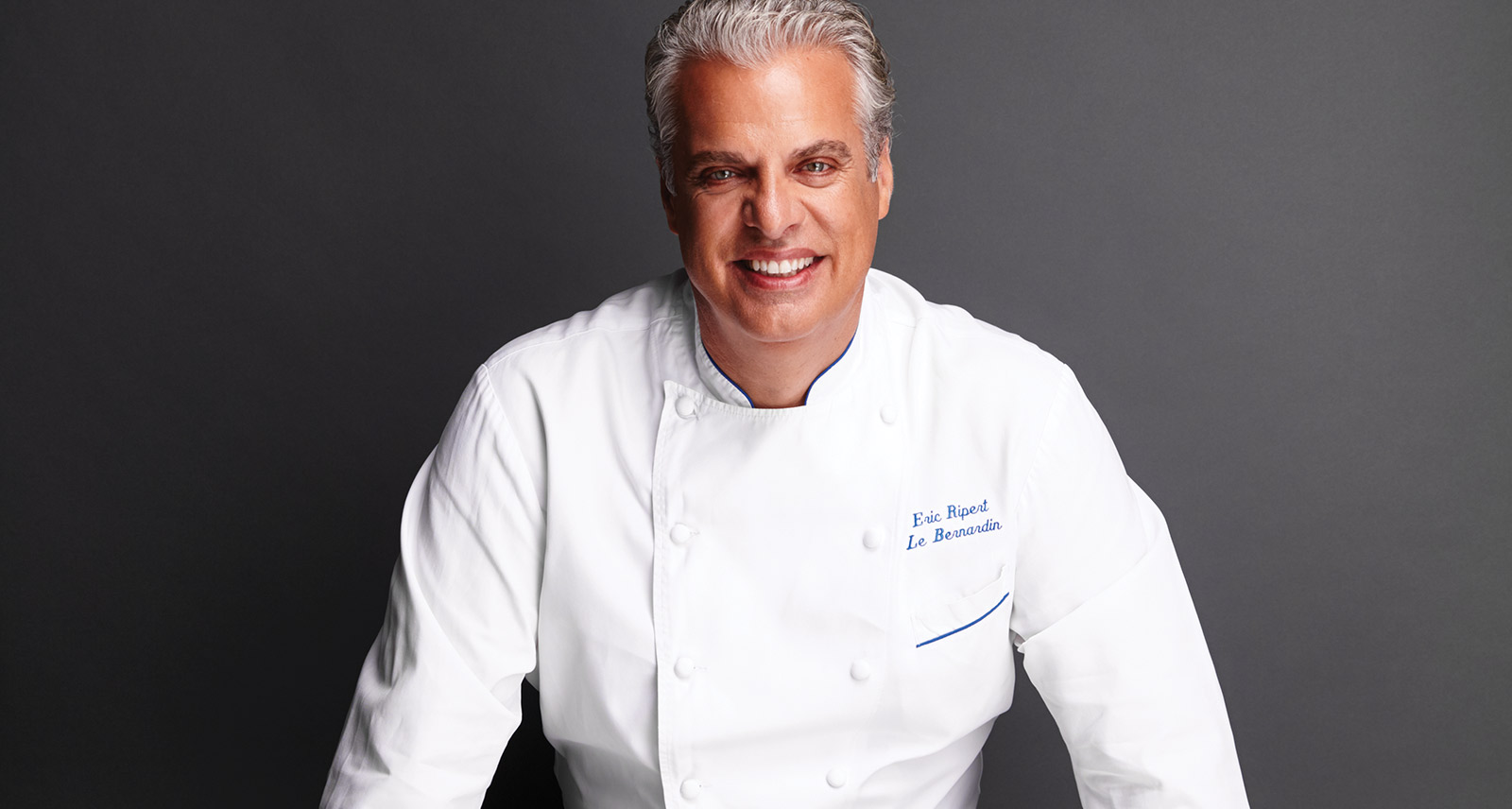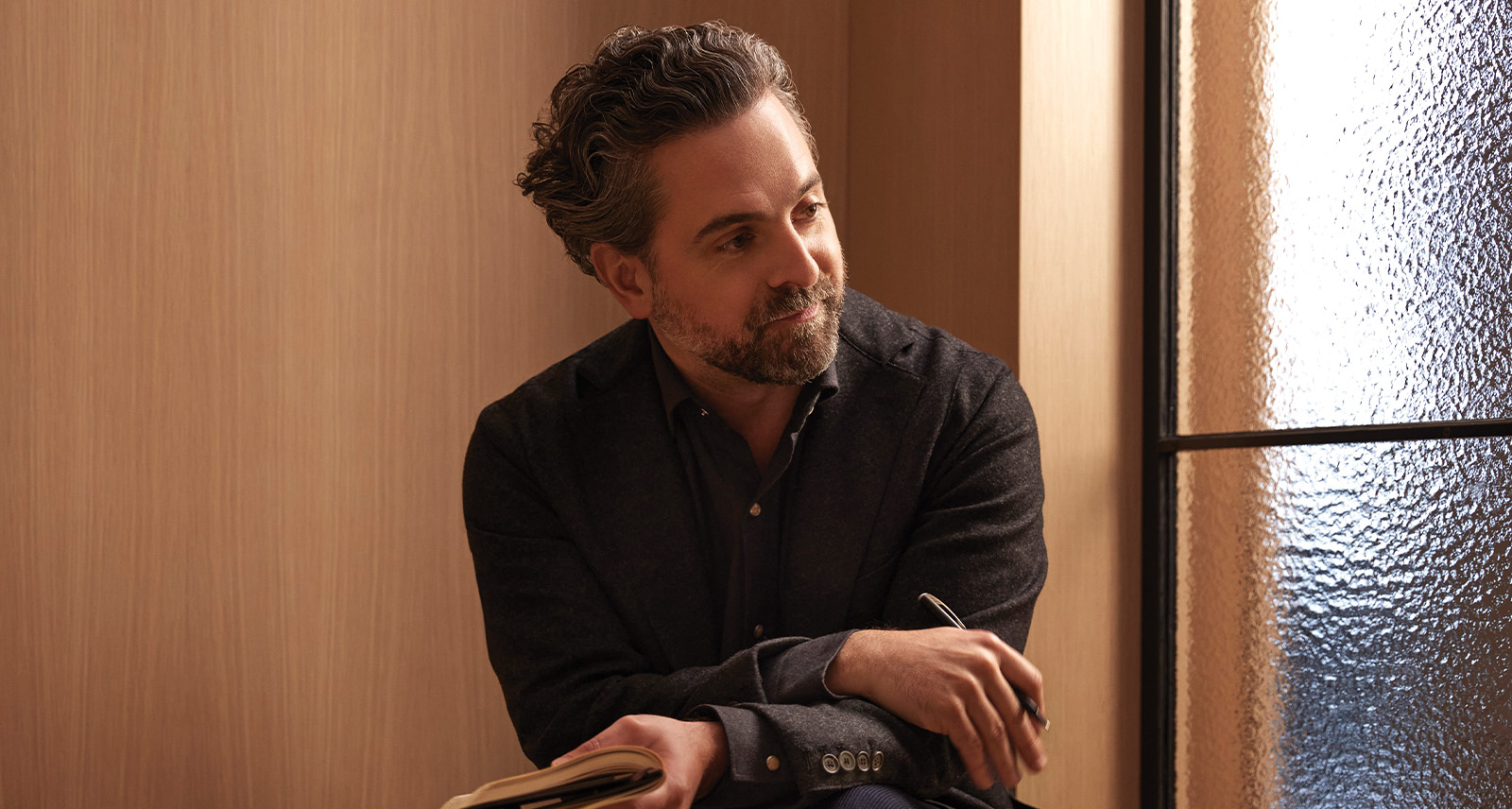With His New Cookbook, Michelin-Starred Chef Eric Ripert Is Elevating Vegetables from Side Dish to Main Attraction
After dinner service on March 13 of last year, Le Bernardin closed its doors for what turned out to be the next year. This left the famed New York restaurant’s chef, Eric Ripert, with some unexpected time on his hands. Ripert has been at Le Bernardin for more than three decades, during which he has maintained three Michelin stars and the restaurant’s reputation as one of Manhattan’s temples of fine dining. A pandemic pivot to, say, takeout hamburgers was never in the cards.
Instead, Ripert spent most of the past year at home, trying to find focus. He meditated, which he’s been doing almost every morning, bright and early, for the past 20 years. “I had the luxury to be able to meditate much more than I thought,” he says. “And sometimes I was challenged, but for meditation, COVID has been good. That’s the only good thing.”
With a clear head and only his family to feed — not the nightly churn of New York’s most discerning diners — he discovered a whole new approach to cooking and a renewed energy in his life’s work. “You know, I have been working all my life, so I am almost never with the family cooking, except sometimes on weekends,” he tells me from his office at the newly reopened Le Bernardin. “At home, I became the private chef of the family. I learned a lot.”
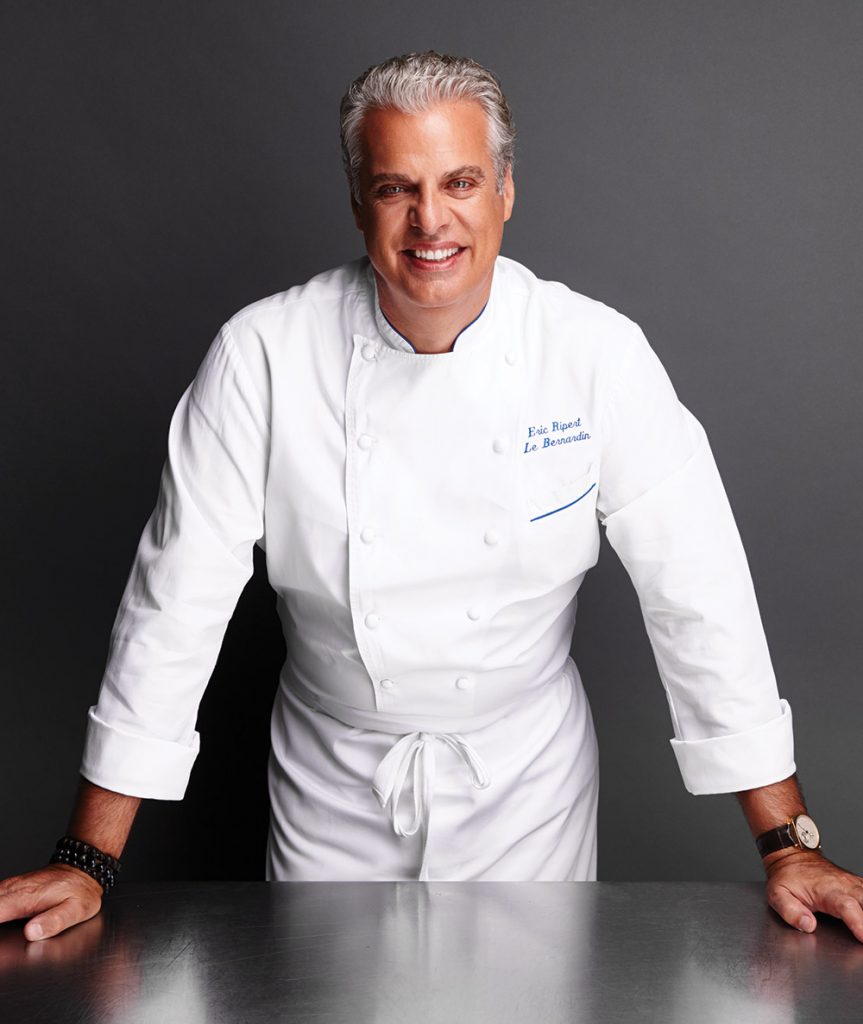
Ripert changed his habits almost overnight. He began the laborious process of supermarket shopping and family meal–planning. He learned how to buy food that would last a week before his next visit to the shop, and how to devise several days’ worth of recipes without getting bored. “You have to be very organized to feed your family well,” he says. “That’s an experience I didn’t have before. Now, I am very efficient and very creative.”
Ripert’s back-to-basics approach is evident in his new cookbook, Vegetable Simple, which he found himself working on throughout the pandemic — even though the idea had been germinating for some time before. As the name suggests, the book is a tribute to vegetables and is, unlike some of the dishes for which he’s become known, radically unfussy.
Many recipes in the book were inspired by Ripert’s childhood in Southern France, where he was influenced as much by his mother’s interest in nouvelle cuisine as by the rustic soul food of his two grandmothers, one Italian and one Provençal. “A lot of that food was pretty simple and mostly vegetable-based. But extremely flavourful.”
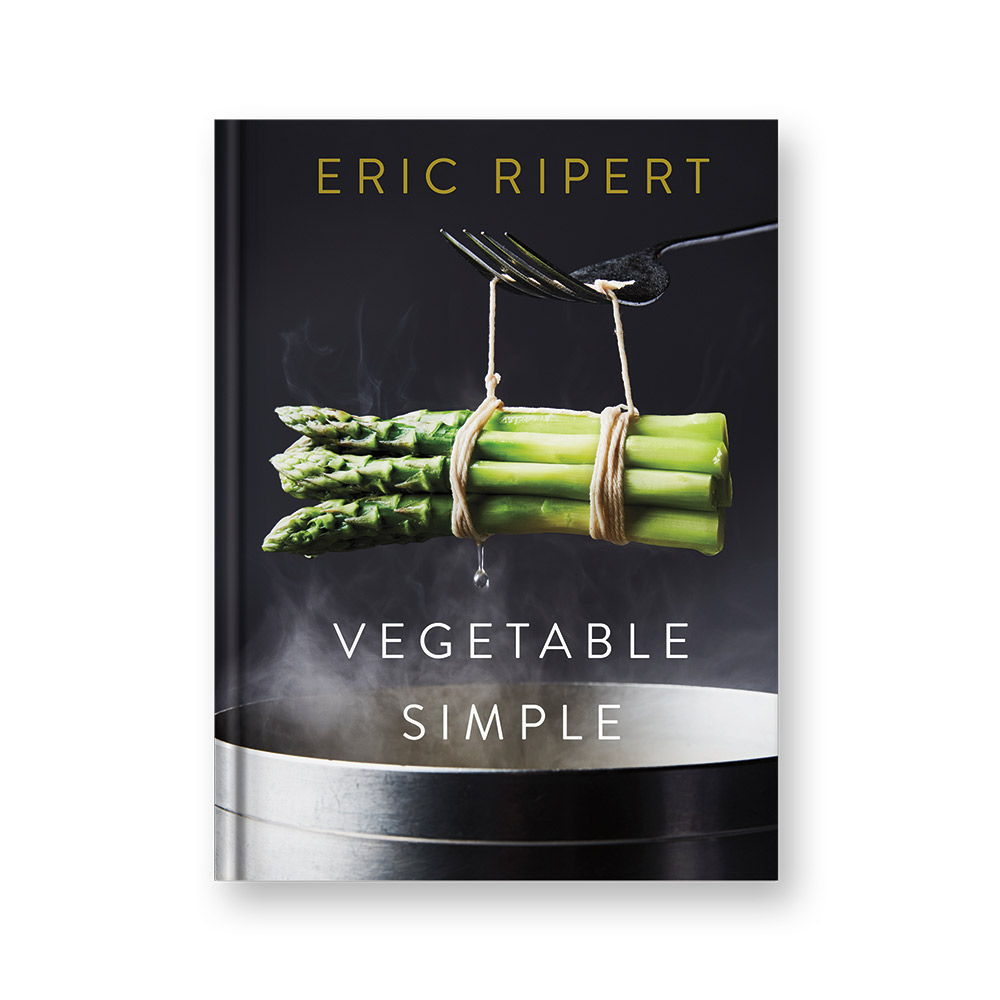
The book tends toward the classic and the unencumbered. Take, for example, Ripert’s recipe for ratatouille, a no-nonsense approach to the traditional Southern French dish that adds no special technique or secret ingredients, just a pot and some vegetables and centuries of practice. Or the vegetable pistou, a pesto-inflected soup that he ate almost weekly growing up. Or, in one of the most radical cases, his recipe for tomato “croque sel”: just a tomato cut in half, drizzled lightly with olive oil and sprinkled with sea salt. “Sometimes, people have a tendency to complicate, because maybe they’re not sure it’s going to be good enough,” he says. “But cooking simple is the best way to elevate the flavour of an ingredient. When it’s the top season for tomatoes, you cannot do better.”
Of course, Ripert is known for his work with fish. Le Bernardin’s tasting menu is an ode to the sea, each delicate course prepared with fine French technique and Ripert’s signature finesse. And while he has, in this book, moved away from fish, his turn to comfort food is still elevated. It is, after all, the only way he knows how to cook. This is aided by the accompanying photographs by Nigel Parry, the renowned portrait photographer best known for his work with celebrities (not eggplants). “I wanted to pay homage to vegetables,” says Ripert. “For a lot of people, vegetables are an afterthought: ‘What am I going to eat with my chicken or my fish?’ But vegetables are really beautiful ingredients.”
Back at Le Bernardin, Ripert is preparing for a smaller-than-usual dinner service. And he’s grateful. While indoor dining is capped at 50 per cent capacity in New York, at least it’s back. Already he can feel the city thrumming to life. For the white tablecloth set, it has been a long, long winter.
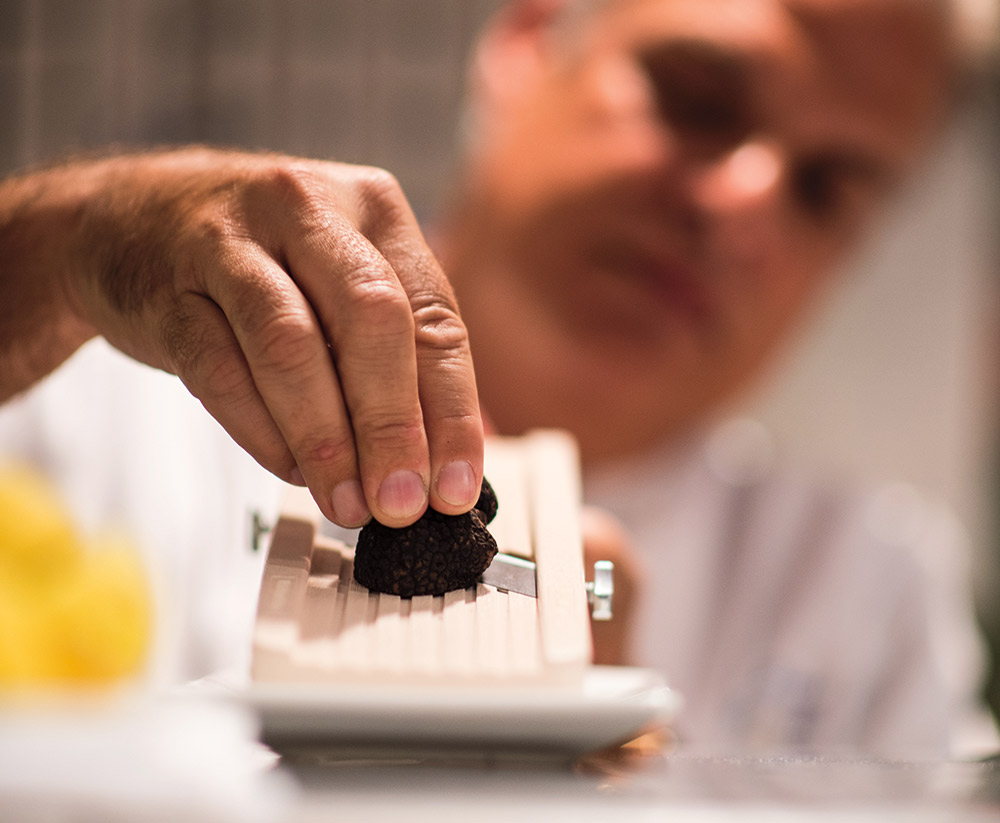
“People are very eager to eat well, drink well. It’s a good vibe,” he says. “People want to spend money. And people are fighting to get tables. It’s good to see everyone wants to live their lives again and have a good time.”
In the short term, this may be the best Ripert can hope for: half the tables, double the energy. But even as COVID cases soar around the world, he sees the tide turning. Has fine dining changed in the process? Not as much as you’d think. “The only difference at Le Bernardin is people will be more conscious about the protocols of safety. We’ll have the habit of washing our hands more often. Maybe less hugging and shaking hands. And me, actually, I’m delighted not to shake hands. I’m not a germaphobe, but before, everyone wanted a picture with me and to shake my hand, and I was very uncomfortable with that. No more!”
